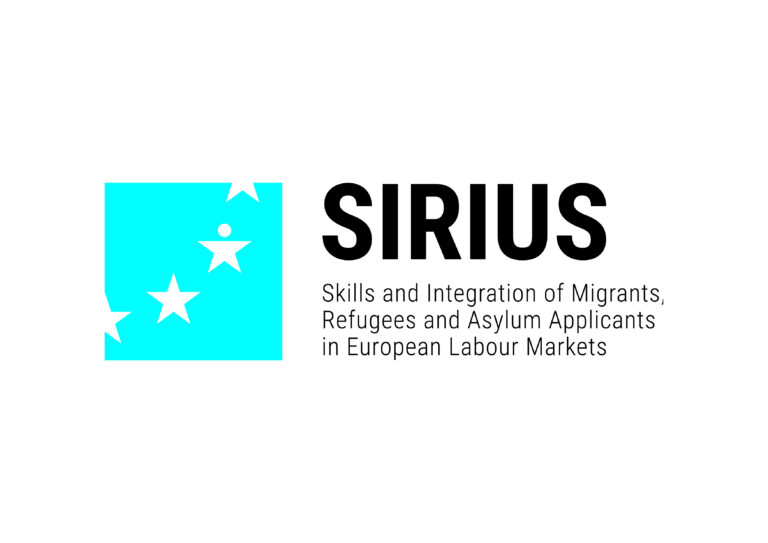SIRIUS project: latest research on the impact of Covid-19 on the participation of migrants, refugees and asylum-seekers in European Labour markets
The SIRIUS project (Skills and Integration of Migrants, Refugees, Asylum Applicants in European Labour Markets) is a Horizon 2020- funded research project. It aims to develop an evidence-based way to deal with migration and asylum, building on a framework looking to identify enablers and barriers to migrants’, refugees’ and asylum seekers’ (MRAs) integration via the labour market.
On 31st March 2021, SOLIDAR organized an online roundtable to present and discuss the latest project research on the impact of Covid-19 on the participation of MRAs in European Labour markets. Our panelists also exchanged views on the latest EU milestones related to migration and integration, notably the New Pact on Migration and Asylum, the Action Plan on Integration and Inclusion 2021-2027 and the approved new Multiannual Financial Framework (MFF).
Birgit Sippel, S&D MEP – opened the meeting with a keynote speech highlighting the importance of linking the reflection around integration to the question of migration procedures. She noted with regret that the proposal for a New Pact on Migration and Asylum was essentially a continuation of the Dublin system, with little provision for solidarity. Ms Sippel then lay the ground for the conversation on the labour integration of MRAs, citing some of the specific challenges these groups face: the risk of exploitation, the lack of availability of training and the inadequate, or inexistent, of procedures for the recognition of skills.
Simone Baglioni, University of Parma and SIRIUS Coordinator, then took the floor to present the research component focussed on the impact of the Covid-19 pandemic. The MRAs have been particularly vulnerable due to their high representation both in employment sectors hardest hit by lockdowns and ensuing unemployment and in the “frontlines” sectors. The integration services, resettlement and reunification programmes were moved online, suspended or cancelled. In many cases, losing their job did not give MRAs access to furlough or income support schemes, and instead delayed or jeopardized their access to long-term residence, benefits, or housing. Prof. Baglioni ended his presentation with a list of policy recommendations and a call for a coordinated action between all stakeholders to mitigate these harmful effects.
Martina Corti, Social Affairs Officer in SOLIDAR, presented SOLIDAR’s analysis and perspective on the New Pact and on the Action Plan on Integration and Inclusion. Overall, SOLIDAR’s opinion of the Pact is negative due to a focus on securization and externalization of borders, to the detriment of ensuring respect of fundamental rights and newcomers’ inclusion. On the other hand, SOLIDAR believes the Action Plan to be promising and welcomes the needs-based approach that it introduces. For more details and our recommendations, read our Briefing Paper.
Mercedes Miletti, Policy advisor on migration at the European Trade Union Confederation (ETUC) provided us with an overview of the European trade unions ’actions to make labour markets more inclusive to migrants. Giulia Ferri, project coordinator and expert on migration in SOLIDAR Italian member ARCI APS, presented her organization’s work with MRAs to make sure no one was left behind in these turbulent times. Antje Grotheer, member of the Committee of the Regions, presented the content of the Committee’s opinion on the New Pact on Migration and Asylum, as well as local and regional initiatives to support MRAs. Last but not least, coordinator of European Commission’s DG HOME Funds programming Guido Castellano told us about the functioning of the Asylum and Migration Fund in the next budgetary period.
The discussion highlighted, among others, the benefits of proper inclusion of MRAs not only for themselves, but also for the European labour markets; the necessity to create legal pathways for migration and to resort to regularization more extensively; and the importance of shifting the narrative to a more positive one emphasizing MRA’s rights. Another thing panelists agreed on is the need to better coordinate the policies on migration and those on integration, including by fostering synergies between EU initiatives and funds related to these issues.



